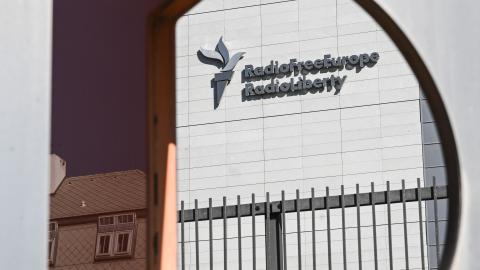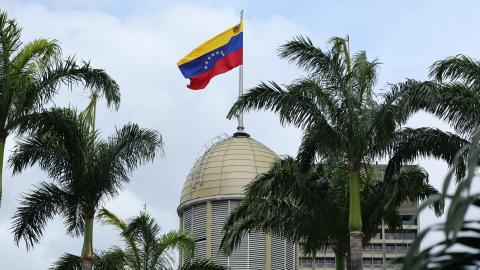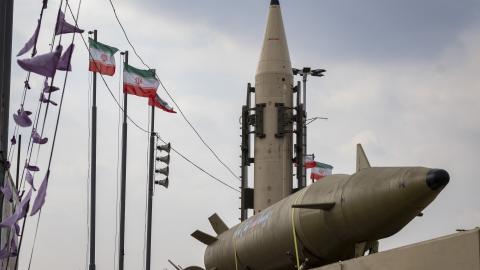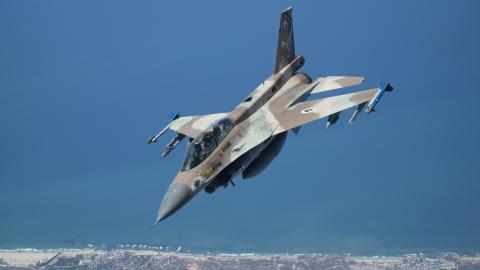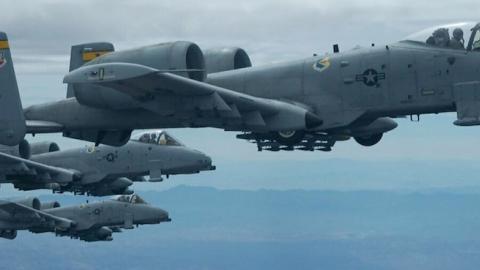The A-10 Warthog, inelegant, dirty, burly, and highly effective, is here to stay The Air Force made the announcement a few weeks ago, confirming rumors that had been buzzing for months. I was relieved. This is a great plane. The new, multi-purpose (and by that, I mean, it was slated to do just about everything…) F-35 Lightning was supposed to replace the A-10. But, with the F-35 still in production, and still eating the defense budget with an insatiable appetite, it just doesn’t make sense to cancel a perfectly good, reliable war-fighting plane.
The announcement got me thinking about a flight I recently took. Both bear on the election of Donald Trump to the presidency.
On the flight, I sat next to an A-10 maintenance officer on “TDY” (temporary duty). We’ll call him Trevor. I think he was in his mid-twenties. He wasn’t even assigned to be next to me, but a flight attendant asked if someone was willing to give up his seat so a mother and her young child could travel together. Trevor gave up his aisle seat for the middle one in my row.
About an hour after the plane was cruising, we exchanged pleasantries when he passed me my coffee. He then asked if I minded if he dipped. I said no. He put a dip in right as the flight attendant walked by. "We don't allow tobacco products out on this plane."
"Yes, ma'am. Good thing I don't have any out,” Trevor said, eyebrows raised while tucking his Skoal back into his bag.
We talked about the Air Force, he mentioned more than once about how excited he was to eat CFA waffle fries, he made fun of the Navy, bragged about "his girlfriend" the A-10 Warthog, and since he knew I lived in the Washington, D.C. area, he told me to pass the message along to Senator McCain, a fierce proponent of the A-10, to keep up the fight to support this "great plane."
While we were talking about gruff veterans, I told him I met the great General “Maddog” Mattis, thinking he might be the type who would think it was neat. I was right. He literally did a double take when I showed him my photo evidence.
Trevor had just spent a year in South Korea, where several A-10s are based to provide sea patrol over waters contested by China, as well as to provide assurance for South Korea and deterrence for North Korea. We talked about North Korea and about how Trevor would give bubble gum to a North Korean soldier standing watch at the DMZ.
I asked him what he thought US forces were doing in ROK. "I know we're the speed bump," he said flatly.
"What do you mean?"
"If the North was crazy enough to attack America, they'd attack us first since we're right there. We'd get beat up pretty bad, but man, we can get up in the air pretty fast, and once we did, we'd make them regret it. That would give the U.S. time to come up with a plan before the Norks tried anything else. We're the speed bump to protect Americans."
He thought that was as it should be.
Trevor readily told me he supports Donald Trump for President and says he wouldn't have recommitted to the Air Force if he'd known how “likely it was” Hillary Clinton would be President. He's confident he and everyone else would be safer with Trump as Commander in Chief.
Trevor, like many of the Nation’s best, is courageous, willing to sacrifice for his countrymen, but unwilling to pick a fight. However, if provoked to battle, he wants to win, and believes President Trump will make good on his promises to give him the resources to do so--such as by rebuilding the military Trevor so readily serves.
Trevor also understood the importance of our South Korean ally. Over the course of the election, many have wondered if Mr. Trump would do away with such critical alliances. He has, after all, questioned the utility of our North Atlantic Treaty Organization (NATO) allies, and, perhaps thinking aloud, suggested it might makes sense if South Korea and Japan acquire their own nuclear arsenals to deter North Korea.
But, to understand Donald Trump, one must keep in mind a couple of things. 1.) He is not a staged politician. You might say, 'how could we forget!?' And yet, many people do! While politicians have sat through hearings and have had staffs who have attended dozens of panels about nonproliferation, Donald Trump was running a profitable company. This has been a large part of his appeal. 2.) When Donald Trump makes comments that rile the feathers of Washington elites, like the one regarding NATO and our Asian allies, he’s normally making a larger, more fundamental point, and seems willing to learn and change the less fundamental policy proscription. This might explain his ever-changing thoughts on how to implement other proposals--such as his border security plan, for example.
So, what larger, more fundamental point could Donald Trump have been making? Perhaps that the United States must only have alliances that help Americans—note they don’t only have to help Americans, but they certainly have to do that. This is not isolationism, either. This is Washingtonian. Recall in Washington’s Farewell Address, he cautioned to “steer clear of permanent alliances with any portion of the foreign world.” Was General Washington an isolationist or a pacifist? Certainly not. He was cautioning that the United States must remain a sovereign power, able to govern itself, and able to resist foreign entanglements that did not ultimately help the American people.
Perhaps Donald Trump is introducing a bit of this Washington-like caution when it comes to alliances. No, it would not be in the interest of the United States to abandon our Asian allies, or those in NATO. But it would be in our interest if those other nations did not take American assurances for granted and if our leaders did not take American support for those alliances for granted. And there's good reason to believe Trump's remarks have grabbed their attention.
Like Trevor already knows so well, Americans are safer with him and the other tens of thousands of American troops stationed on the front line of defense, maintaining peace and keeping the enemy at bay, in places like South Korea and Japan. And those troops are safer when they have the tools they need to accomplish the mission--tools like a Warthog in overwatch above them. And, yes, tools like the alliance with South Korea and Japan. These are crucial, and, as I've written before, such will be even more crucial in the months and years ahead. But there's more our allies can do to bolster security in the region, and the United States must forcefully encourage this. Let us hope a President Trump is up to the task. Trevor believes he is.


